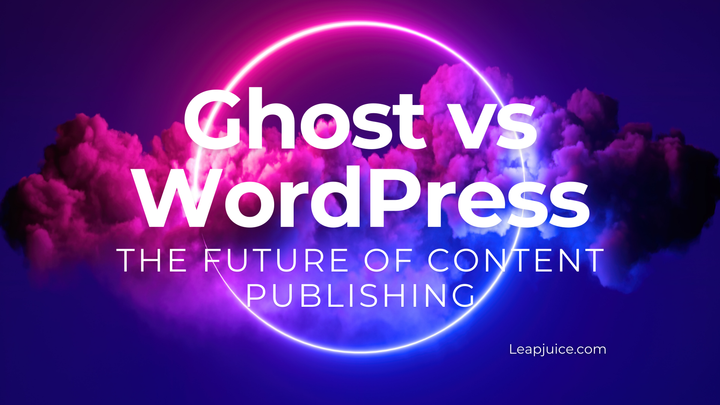Comparing Ghost CMS vs WordPress
In this article, we will compare Ghost to WordPress, another popular CMS, to help you decide which one is the best fit for your needs.

Ghost is a relatively new content management system (CMS) that has been gaining popularity in recent years. It was first released in 2013 and has since become a popular choice for bloggers and small business websites. In this article, we will compare Ghost to WordPress, another popular CMS, to help you decide which one is the best fit for your needs.
One of the main differences between Ghost and WordPress is their focus. Ghost is primarily geared towards professional bloggers and small business owners, while WordPress is more of a general-purpose CMS that can be used for a wide range of websites. As a result, Ghost tends to have a more streamlined and simplified interface, while WordPress can be more complex and feature-rich.
Another key difference between the two is the way they handle blogging. Ghost was designed specifically for blogging, and it shows in the way the platform is structured. It has a clean, minimalistic design and a focus on creating a great reading experience for your visitors. WordPress, on the other hand, has a more traditional blog layout and a wider range of customization options, but it can also feel cluttered and overwhelming at times.
When it comes to functionality, both Ghost and WordPress have a lot to offer. Ghost has a range of features that are specifically geared towards bloggers, such as the ability to schedule posts and integrate with email marketing platforms. It also has a strong focus on SEO, with features like automatic XML sitemaps and the ability to customize page titles and meta descriptions. WordPress, on the other hand, has a vast array of plugins and extensions that can add almost any functionality you can imagine to your site. However, this can also make it harder to find the specific features you need, as there are so many options to choose from.
One area where WordPress has a clear advantage over Ghost is in terms of flexibility and customization. WordPress has a huge community of developers and users, which has led to the creation of a vast library of themes and plugins. This means you can easily change the look and feel of your site, as well as add new functionality, without having to do any coding. Ghost, on the other hand, has a smaller community and a more limited selection of themes and integrations.
In terms of pricing, both Ghost and WordPress have free versions that you can use to get started. However, Ghost also has lighting-fast, optimized hosting with Leapjuice, which starts at $5 per month when paid quarterly. This includes features like advanced SEO tools, integration with email marketing platforms, and full access to premium custom themes. Leapjuice is also releasing a WordPress managed hosting offering, expected to start at $5 per month as well. WordPress is completely free to use, but you may need to pay for premium themes or plugins if you want to add specific functionality to your site.
In conclusion, Ghost and WordPress are both powerful content management systems that have a lot to offer. Ghost is a great choice for professional bloggers and small business owners who want a streamlined, focused platform for creating and sharing content. WordPress is a more general-purpose CMS that is ideal for a wider range of websites, but it can be more complex and overwhelming to use. Ultimately, the right choice for you will depend on your specific needs and preferences.




Comments ()